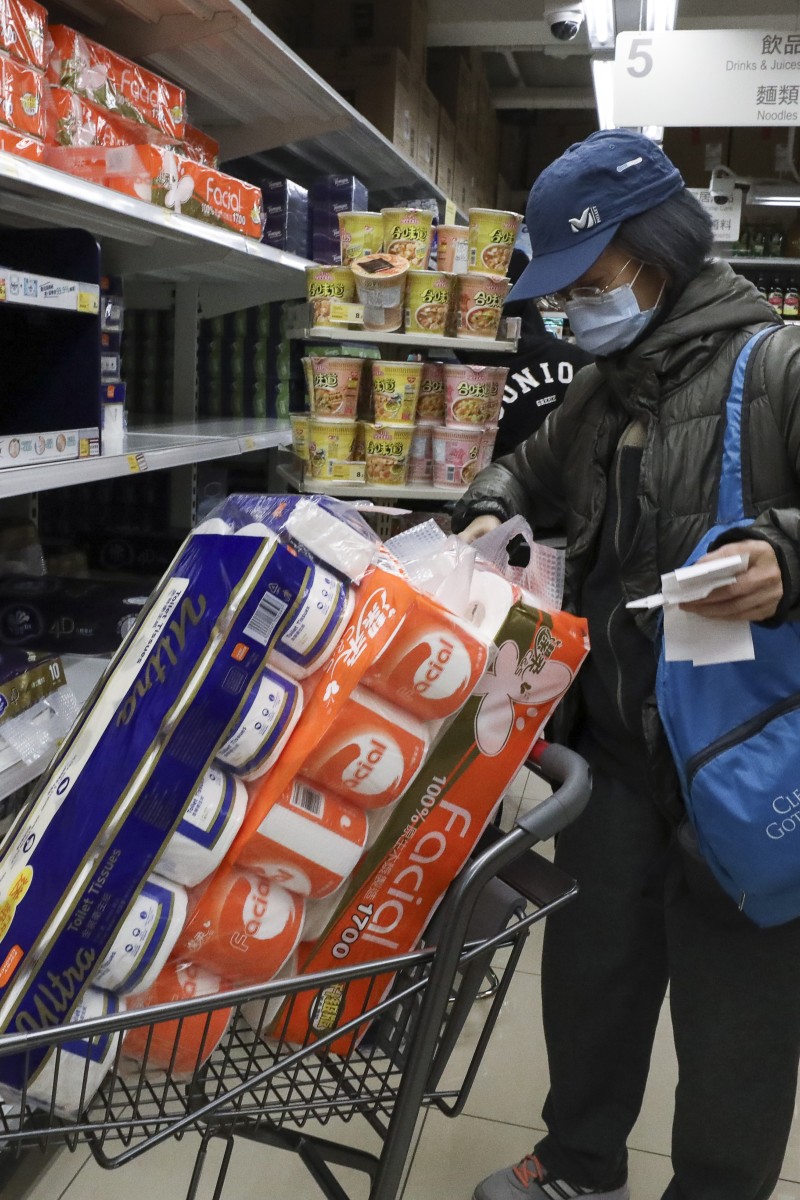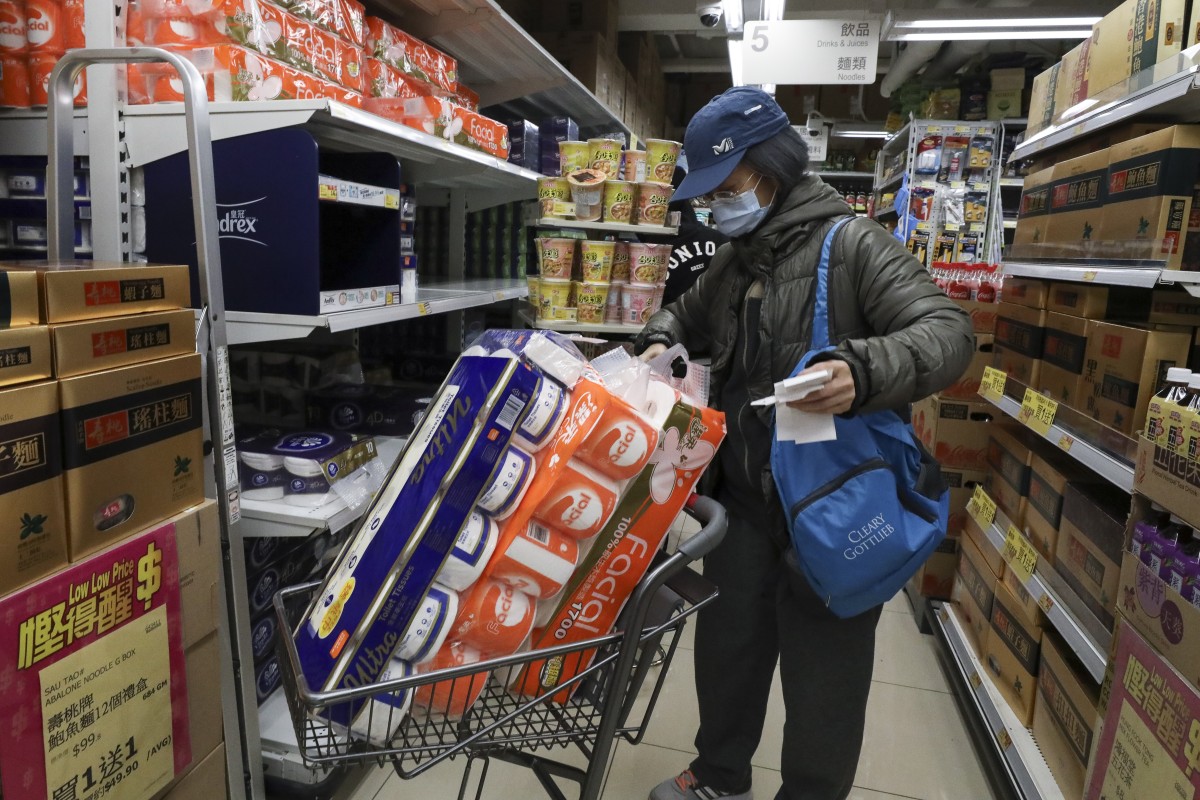
Coronavirus: Hong Kong’s toilet paper supply to improve this week, importer says
Consumer Council says challenge is distribution of toilet rolls, as some districts have enough stocks while others stare at empty shelves
 Hong Kong’s toilet paper supply is expected to improve this week, says a major importer.
Hong Kong’s toilet paper supply is expected to improve this week, says a major importer.A major importer revealed on Wednesday that Hong Kong's toilet paper supply is expected to improve this week.
Philip Ho, an importer and chairman of the Hong Kong Suppliers Association, said his company had tripled the product’s supply in February, shipping several containers every day, each carrying 50,000 to 72,000 rolls of toilet paper to the city.
Ho believed the availability would improve later this week.
But the consumer watchdog said that the challenge remained the distribution of the rolls across the city, while calling for quick and accurate adjustments in its allocation to reduce panic among shoppers and restore a stable market.
A timeline of the coronavirus outbreak
The importer said his company had been coordinating with factories to ramp up supply and hiring additional drivers to speed up deliveries to stores.
“We certainly do not want to see empty shelves when there is a continuous supply,” he said.
Supermarket chain ParknShop said it had doubled the quantity of toilet paper delivered to its stores to meet the surge in demand, while Wellcome said it would do its utmost to speed up replenishment.
Willy Lin Sun-mo, chairman of the Hong Kong Shippers’ Council, said: “Many transport workers have not taken a day off since the Lunar New Year.”
Lin also said that border closures did not affect the imports as he observed cross-border traffic was approaching one of its historic highs, with more than 4,000 trucks travelling between the city and mainland China every day to help maintain a stable supply chain.
Toilet rolls became a sought after item two weeks ago when anxious Hongkongers snapped up entire shelves of the product, along with boxed and pocket tissues, amid fears that production in mainland China would stop because of the public health crisis.
Such fears, fed by online rumours, mounted when the government announced on February 5 that it would impose a 14-day quarantine on anyone entering from the mainland, sparking concerns that supplies would also be held up.
In response, the government repeatedly assured the public that its containment strategy would not affect imports while major supermarkets introduced quotas to allow more customers buy the product.
Ho said suppliers typically prepared a buffer stock of about a month’s supply before mainland factories closed for the Spring Festival, and restocked as soon as production resumed, which was scheduled on February 3 this year.
The factories, however, did not resume production until February 10 because of the outbreak that originated in the mainland city of Wuhan.
“The delay had a slight impact on the supply that should ordinarily be cushioned by the buffer,” Ho said. “But because of the increased demand fuelled by the rumour, people were buying 10 packets in one go, stocking mountains of rolls at home and hoarding a year’s supply – then of course there would not be enough to share.”
